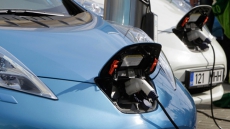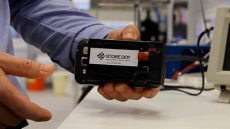Computer scientist Shree K. Nayar from the Columbia University has invented the world's first fully self-powered video camera that can produce an image each second, indefinitely, of a well-lit indoor scene.
Nayar designed a pixel that not only can measure incident light (a ray of light that strikes a surface) but also convert the incident light into electric power.
"We are in the middle of a digital imaging revolution. A camera that can function as an untethered device forever -- without any external power supply -- would be incredibly useful," said Nayar, who heads the computer vision laboratory at the Columbia Engineering.
At the heart of any digital camera is an image sensor, a chip with millions of pixels.
The key enabling device in a pixel is the photodiode which produces an electric current when exposed to light.
The photodiode in a camera pixel is used in the photoconductive mode while in a solar cell it is used in the photovoltaic model.
This mechanism enables each pixel to measure the intensity of light falling on it.
Nayar, working with research engineer Daniel Sims, and consultant Mikhail Fridberg of the consultancy firm ADSP Consulting used off-the-shelf components to fabricate an image sensor with 30x40 pixels.
In Nayar's prototype camera, which is housed in a 3D printed body, each pixel's photodiode is always operated in the photovoltaic mode.
When the camera is not used to capture images, it can be used to generate power for other devices, such as a phone or a watch.
According to Nayar, the image sensor could use a rechargeable battery and charge it via its harvesting capability.
"But we took an extreme approach to demonstrate that the sensor is indeed truly self-powered and used just a capacitor to store the harvested energy," he noted.
"We believe our results are a significant step forward in developing an entirely new generation of cameras that can function for a very long duration -- ideally, forever -- without being externally powered," the authors wrote.
The team is set to present its work at the international conference on computational photography at the Rice University in Houston April 24-26.





